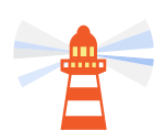 A large majority of Europeans used the internet in 2016. It features firmly in daily life, education, work and society as a whole as it allows people to access information and services at any time from any place.
A large majority of Europeans used the internet in 2016. It features firmly in daily life, education, work and society as a whole as it allows people to access information and services at any time from any place.
In 2016, 85 % of European households had access to the internet from home. This share has been gradually increasing since 2007, when only 55 % of households had access. At EU-Member State level, Luxembourg and the Netherlands (97 % each) had the largest shares of households with access to the internet. In five other Member States the share of households connected to the internet was above 90 %: Denmark and Sweden (94 % each), the United Kingdom (93 %), Germany and Finland (92% each).At the other end of the scale, the lowest proportions were registered in Bulgaria (64 %) and Greece (69 %) followed by Romania and Lithuania (72 % each).
Between 2010 and 2016, Bulgaria and Romania had significant increases (around 30 percentage points) in the share of households connected to the internet, although both countries still remain at the lower end of the scale. In the same period, Spain, Greece, Hungary, the Czech Republic and Croatia also registered large increases (more than 20 percentage points).
Read more in the Statistics Explained article Internet access and use statistics - households and individuals


